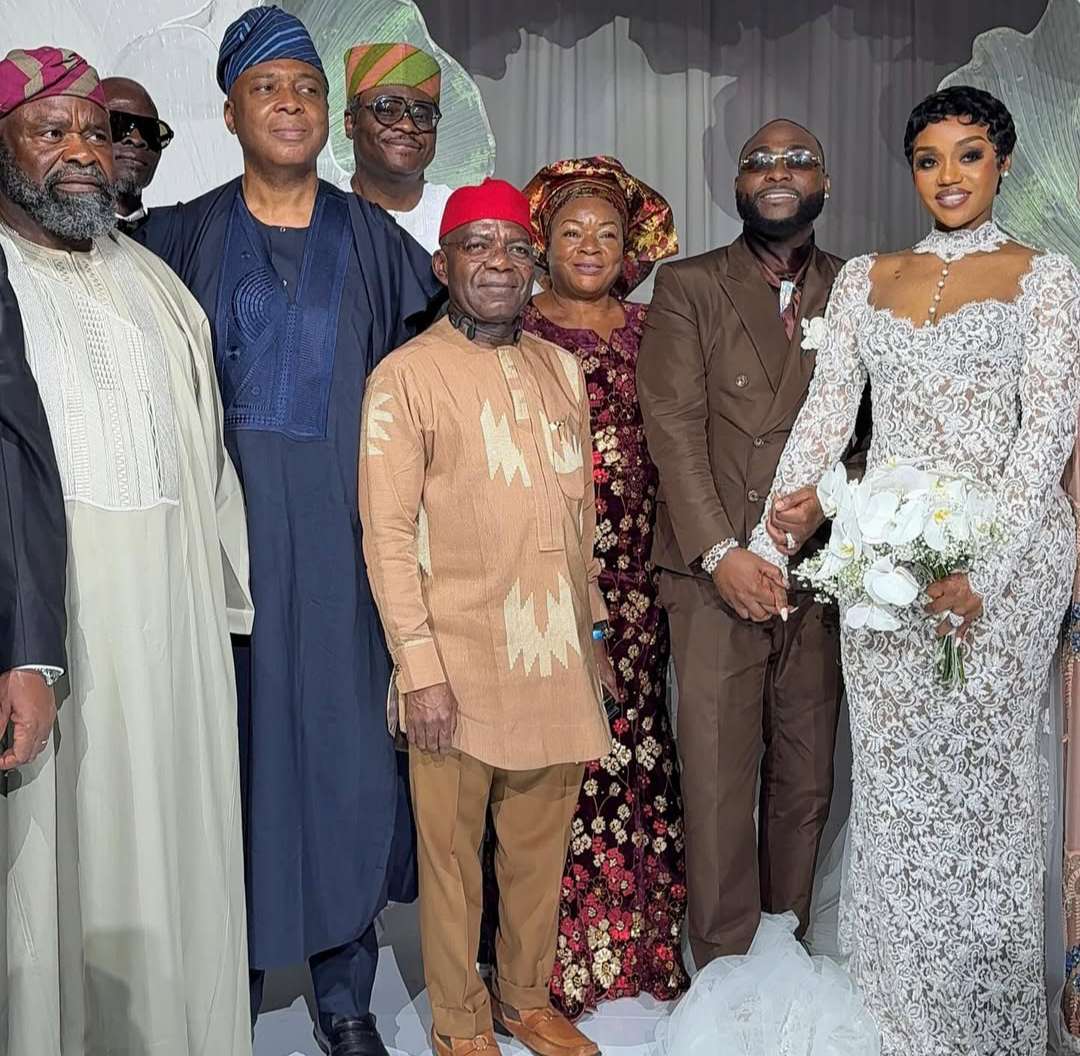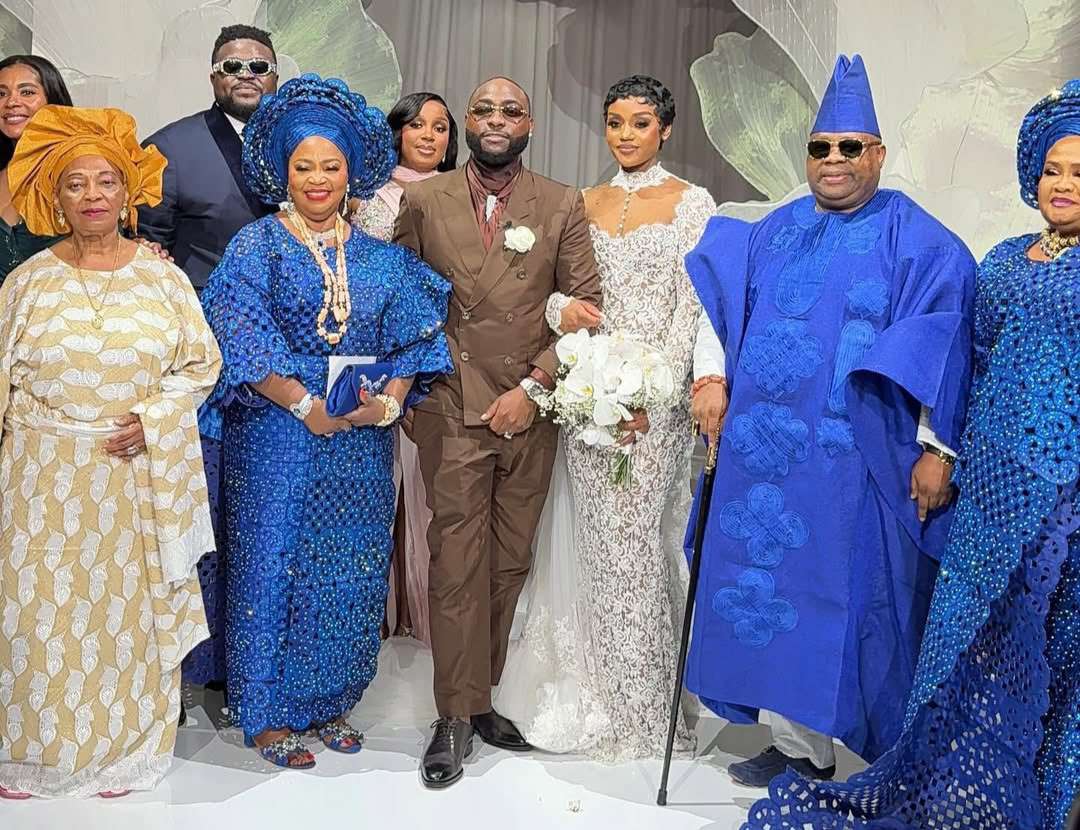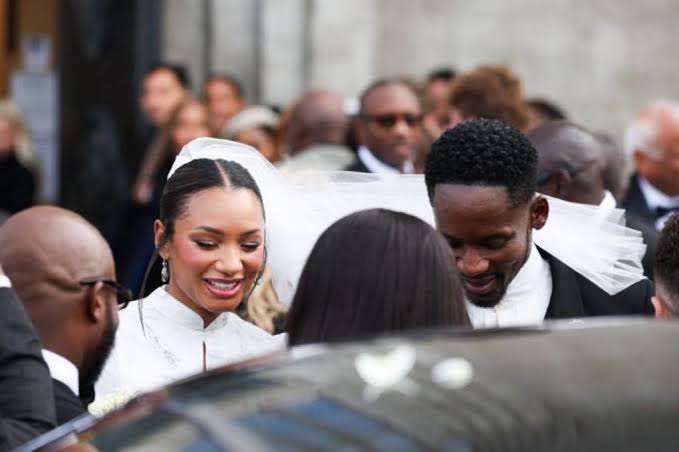Business
From medicine to matrimony: Davido, Mr. Eazi’s weddings abroad drain Nigeria’s tourism potential

Picture Obudu Cattle Ranch, once a crown jewel of Nigerian tourism, basking in renewed glory. Imagine the winding hills and serene landscape filled with the world’s press, global music stars, and African billionaires, all gathered for the wedding of David Adeleke, better known as Davido, and his bride, Chioma. It would have been a once-in-a-generation publicity windfall, a tourism goldmine for Nigeria.
Now imagine Olumo Rock or the sprawling Zuma Rock foothills, transformed into a fairy-tale setting for Oluwatosin Oluwole Ajibade, alias Mr Eazi, and actress Temi Otedola, daughter of oil billionaire Femi Otedola. In such a scenario, chartered flights from London, New York, and Dubai would land in Lagos and Abuja, pumping foreign exchange into the local economy, filling hotels, restaurants, and entertainment venues.
Instead, both weddings: high-profile, celebrity-studded affairs with immense global media reach, took place thousands of miles away, in Miami, United States, and Reykjavík, Iceland, respectively. For Nigeria, they were two glittering missed opportunities.
A Miami affair
Davido’s Miami white wedding on Sunday was a spectacle of glamour, emotion, and extravagance. Having already held a traditional ceremony in Lagos in June 2024 and a court wedding in March 2023, the Grammy-nominated singer spared no expense for this finale.
The guest list read like a who’s who of African business and entertainment: billionaire Aliko Dangote, Abia State Governor Dr. Alex Otti,cOsun State Governor Ademola Adeleke, former Senate President Bukola Saraki, nightlife impresario Obi Cubana, stars like Adekunle Gold, Teni, Zlatan Ibile, D’banj, and even international names like Kirk Franklin and Jamaican artiste Shenseea.

Davido confessed during the ceremony: “Chioma, I have been on many stages, but this is the most nervous I have ever been. You are my love, my peace, my home… You saw the real me, the me the world doesn’t see, and you still chose me.”
Beyond the romance, there was opulence. Reports suggest Davido spent $3.7 million on the event, including a $300,000 Richard Mille wristwatch gift to Chioma, his second such gift to her, and customised cufflinks bearing the image of their late son, Ifeanyi. The ceremony was drenched in luxury, with foreign service providers, venues, and vendors reaping the financial rewards.
Had the celebration been hosted at a Nigerian destination resort, the millions in spending, coupled with global attention, would have boosted local tourism, hospitality, and ancillary sectors. Instead, the bulk of the economic activity remained offshore.

A Nordic love story
If Davido’s Miami wedding was a tropical luxury feast, Mr Eazi and Temi Otedola’s union in Iceland was an exercise in understated elegance.
The couple wed at Reykjavík’s iconic Hallgrímskirkja Church, closed to the public and adorned with flowers for the occasion. Guests included Aliko Dangote once again, alongside family and close friends like DJ Cuppy. Nigerian comedian Broda Shaggi shared videos from the intimate ceremony.
It was a love story years in the making. Engaged in April 2022, the pair had hinted at keeping the ceremony private. That privacy came at a cost to Nigeria’s economy: the foreign venue, service providers, and tourist draw were all Icelandic.
In another reality, the wedding could have taken place in a reimagined, luxury-calibrated Nigerian location – perhaps the Cross River canopy walkway, a historic Benin City palace, or the pristine beaches of Ilashe Island. Such an event could have showcased Nigeria’s high-end destination capacity and generated local pride and jobs.
A pattern with costly implications
These weddings fit a long-running trend: Nigeria’s elite choosing foreign destinations for high-profile personal milestones: whether for medical care, education, or celebrations.
For decades, wealthy Nigerians have travelled abroad for medical treatment, citing inadequate facilities and poor service delivery at home. The result has been a steady outflow of foreign exchange and the neglect of domestic health infrastructure. The same mindset now pervades tourism and event hosting.
Industry observers note that high-profile events like Davido’s and Mr Eazi’s are more than personal celebrations; they are economic catalysts. They bring inbound travellers, stimulate domestic hospitality sectors, and create media narratives that can reposition a country’s image.
Nigeria’s tourism industry has been limping for years, plagued by insecurity, poor infrastructure, and underinvestment. According to the Nigerian Bureau of Statistics, tourism contributes less than 5% to GDP, a stark contrast to countries like Kenya and South Africa, where it accounts for up to 10% or more.
If Davido’s $3.7 million Miami spend had been channelled into a Nigerian destination wedding, analysts estimate that at least half would have gone directly into local businesses, hotels, catering, event decoration, transportation, entertainment, and security. That’s over ₦2.5 billion in potential domestic economic activity, excluding the multiplier effect of foreign visitors spending on tours, souvenirs, and extended stays.
Similarly, Mr Eazi’s Iceland wedding, while smaller in scale, would have generated significant publicity and spending in Nigeria had it been held locally.

Mr. Eazi and Temi Otedola
High-net-worth attendees like Dangote and Otedola could have showcased Nigerian destinations to a global audience, potentially influencing other wealthy Africans to consider the country for luxury events.
The ripple effect on domestic tourism
The absence of marquee events at home is more than symbolic: it means fewer opportunities for Nigeria to market itself as a safe, glamorous, and service-oriented destination. In an age where Instagram posts and viral videos drive travel interest, the location of celebrity events matters.
South Africa leveraged this dynamic when Beyoncé and Jay-Z performed at the Global Citizen Festival in Johannesburg in 2018. The event attracted thousands of foreign visitors and generated global media buzz. Likewise, Kenya’s safari weddings for Indian billionaires have boosted its luxury tourism image.
Nigeria, by contrast, is losing such chances. Even its most famous cultural exports — Afrobeats superstars – are holding milestone celebrations elsewhere.
To reverse the trend, stakeholders say Nigeria must invest in security, infrastructure, and targeted marketing of its destinations. Public-private partnerships could revive once-iconic sites like Obudu Ranch, Yankari Game Reserve, and Tinapa Resort, transforming them into venues capable of hosting events on par with Miami or Reykjavík.
Special incentives for celebrity or high-profile events – such as tax breaks, visa facilitation for guests, and government-backed security guarantees – could also entice stars to “bring it home.”
Without such measures, Nigeria will remain a country whose most bankable cultural figures spend their biggest moments abroad, while its tourism sector remains in the shadows.








